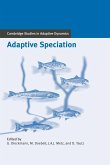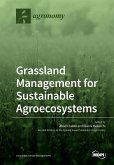In the classic Adaptive Management of Renewable Resources, first published in 1986 and here reprinted, Carl Walters challenges the traditional approach to dealing with uncertainty in the management of such renewable resources as fish and wildlife. He argued that scientific understanding will come from the experience of management as an ongoing, adaptive and experimental process, rather than through basic research or the development of ecological theory. In the opening chapters, Walters reviews approaches to formulating management objectives as well as models for understanding how policy choices affect the attainment of these objectives. In subsequent chapters, he presents various statistical methods for understanding the dynamics of uncertainty in managed fish and wildlife populations and for seeking optimum harvest policies in the face of uncertainty. Walters concludes with a look at the prospects for adaptive management of complex systems, emphasizing such human factors involved in decision making as risk aversion and conflicting objectives as well as biophysical factors. Throughout the text, he uses dynamic models and Bayesian statistical theory as tolls for understanding the behavior of managed systems and he illustrates these tools with simple graphs and plots of data from representative cases. This text/reference will serve researchers, graduate students and resource managers who formulate harvest policies and study the dynamics of harvest populations as well as analysts (modelers, statisticians and stock management experts) who are concerned with the practice of policy design. Dr. Carl Walters is currently Professor of Zoology and Fisheries at the University of British Columbia, Vancouver, Canada. Dr. Walters is a specialist in fisheries stock assessment, adaptive management, and ecosystem modeling. He uses mathematical modeling and computer simulation techniques to better understand the dynamics of exploited marine ecosystems and to find more effective methods to manage them in the face of natural variability and high uncertainty. He advocates cooperative arrangements between governments and fishing industries to provide improved information for stock assessment and management via methods such as industry-based surveys. His main research work is on the theory of harvesting in natural resource management, with a primary interest in the basic problem of how to behave adaptively in the face of extreme uncertainty. He is one of the main developers of the ecosystem simulation program known as Ecosim, which is being used to test ideas about organization of trophic interactions in marine systems, and the implications of these interactions for sustainable harvesting theory. He has written over 150 articles and two books and is a Fellow of the Royal Society of Canada.
Hinweis: Dieser Artikel kann nur an eine deutsche Lieferadresse ausgeliefert werden.
Hinweis: Dieser Artikel kann nur an eine deutsche Lieferadresse ausgeliefert werden.








